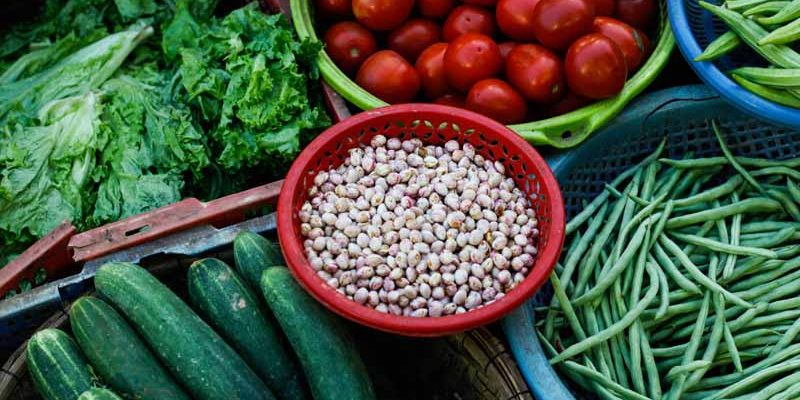If we say that the global food system is not working, unfortunately, we are not saying anything new. The statistics are shocking. Since 1975 global levels of obesity have tripled, but 829 million people still go hungry; and yet around 20% of the food produced in the EU is wasted.
But there are other facts that we cannot fail to take into account: our food is responsible for between 25% and 30% of greenhouse gas emissions, establishing a clear link between our food production model, the destruction of ecosystems and climate change.
Knowing all this, how and where food is produced, the way it is distributed and consumption habits play a key role.
Plant-based food – the solution to the problem?
Many factors have brought us to this situation, but there is no doubt that the reduction of meat consumption is something that needs to be addressed. 33% of fertile soil is used to harvest livestock feed. Every year, 13 billion hectares of forest area is lost due to the conversion of land to agricultural uses such as pasture or cropland, both for food and feed production for livestock, with consequent impacts on water availability, soil fertility and climate change.
With all this, moving towards plant-based options is becoming a necessity, but you can’t just do it any old way. Here are some keys:
- Offer quality products that provide variety and are attractive to consumers, both in terms of taste and price. It is not enough just to tell consumers what they should do (eat less meat), but they must also be guaranteed an offer that allows them to make the change willingly. In this sense, the imitation of meat products with vegetable options is taking up an important niche in the market. The Vegetarian Butcher, founded by Jaap Korteweg and recently acquired by Unilever, offers products that emulate meat, as is evident from the name of the brand itself.
- Look for different channels to reach the consumer. Meat substitutes may not be the first choice for supermarket purchases, but restaurants can be a good option to make that first introduction. With this idea, still using The Vegetarian Butcher as an example, they made a collaboration with Burger King through the Veggie Whoper, which was first tested in Sweden and the US and then launched in 25 other countries.
- Let’s not repeat the same mistakes. Today, approximately 75% of what we eat comes from 12 types of crops and 5 species of animals. However, there are more than 20,000 types of edible vegetables available worldwide. Variety will not only make our diet more diverse and less boring. From an environmental point of view, it reduces the risks of species extinction and overexploitation of soils. To raise awareness among both producers and consumers, WWF UK and Knorr launched The Future 50 Foods initiative to showcase 50 veggie foods and recipes to make with them.
- In terms of health, just because it is plant-based does not mean that calorie intake should not be taken into account. It is true that, in general terms, plant-based products have a healthier nutritional profile, with, for example, less saturated fat, but overconsumption of calories is a problem. It is therefore important to support consumers in adopting healthier habits through a wider choice of products.
The protein transition has definitely comw to stay and, with research and innovation, there are many opportunities for the food sector.
